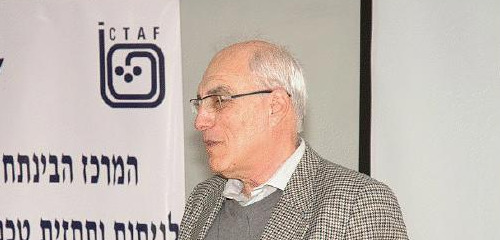By studying today’s trends and making predictions, the Israeli ‘node’ of the Millennium Project is helping build a better future by alerting those in power to potential problems.

Scientists around the world are working to predict the future – from developments in technology to social upheavals to economic crises – and they aren’t using a crystal ball.
Synthesizing a multiplicity of academic disciplines and operating in 35 centers around the world, participants in the Millennium Project think tank are analyzing trends to forecast future developments in the realms of technology and society as a whole.
Producing comprehensive annual reports since its founding in 1996, the think tank aims to provide governments, organizations and industries with the information to make strategically sound decisions for the future, and to circumvent looming challenges.
The Israeli center or ‘node’ that works with the Millennium Project is the Interdisciplinary Center for Technology Analysis Forecasting (ICTAF), located at Tel Aviv University (TAU). The center collaborates with international researchers on a variety of studies, of which the Millennium Project is just one.
Tackling global challenges
“The center was created in order to help decision-makers do better thinking about future processes, and to make better decisions based on developments in science and technology,” explains Dr. Yair Sharan, physicist and director of ICTAF. “If you are a government, industry, or organization and want to plan for 10 to 20 years from now, it’s a good idea to know the trends or processes occurring in fields or domains that you are involved in.”
Many factors are involved in ‘Future Studies,’ or ‘Forecasting,’ and researchers at ICTAF include experts from nearly every field of science as well as some of the humanities. Since developments in technology can have a direct impact on society, the research findings are often far-reaching, as technological developments lead to changes in social, economic, and geopolitical spheres.
The center deals with global challenges such as sustainable development; science and technology; energy; the clean water problem; population and resources; global democratization; the future of communication; the gap between rich and poor; health issues; peace and security; the status of women; and even the future of organized crime.
Forecasting can have solid commercial value for companies. As Sharan says, “In the 1990s, it would have been useful for telecommunications companies to have known that every citizen in Israel would have at least two mobile phones in their pockets 15 years later. You can take almost every technological field and evaluate how it will evolve in the future, and the impact these developments will have on society, on your business, and plan your activities accordingly.”
Building a better future
But the overarching goal of ICTAF – and the Millennium Project as a whole – is to help build a better future by alerting those in power to potential problems.
“Every year the state of the world’s future is evaluated and specific trends and issues are discussed with the hope that those who should take care of them will use these lessons,” says Sharan. Forward-thinking countries that are taking heed of future trends in their decision-making include Japan, much of Europe, and the US.
Some negative future developments predicted by the Millennium Project include: diminishment of individual privacy, difficulties with security – especially in the Middle East -and the rise of organized crime.
But there is a bright side as well: Life spans are becoming longer, and the prediction is that by 2030 people will have about eight hours of free time per day instead of today’s average of five hours.
These positive developments come with their own setbacks, however, for which governments need to be prepared: Longer life spans mean an increase in population, which is a strain on resources. Abundant free time means that the structure of people’s daily lives will change.
Coming from a background in physics and security, Sharan affirms that he moved to Future Studies because he is fascinating by the field. “Destiny brought me to it,” he says. As someone who evaluates the world’s destiny on a regular basis, he should know.












